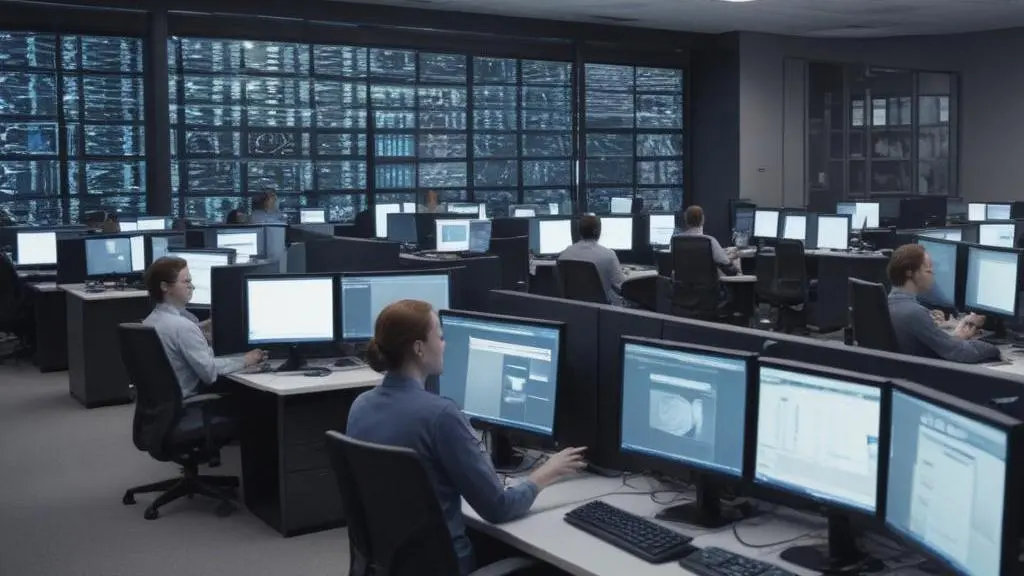The Bhabha Atomic Research Centre (BARC) stands as a pillar of India’s nuclear research and development. Established in 1954, BARC has been instrumental in advancing nuclear technology, ensuring energy security, and fostering technological innovations. This exploration delves into the rich history, groundbreaking research, and future prospects of BARC.
Historical Overview
The Bhabha Atomic Research Centre (BARC) was founded by Dr. Homi J. Bhabha, a visionary scientist who laid the foundation for India’s nuclear program. Established in 1954, BARC has evolved into a multidisciplinary research centre focusing on nuclear science and engineering. The centre’s early years were marked by significant achievements, including the development of the first Indian research reactor, Apsara, in 1956.
Over the decades, BARC has expanded its capabilities, contributing to various fields such as reactor design, fuel cycle technologies, and radiation safety. The centre’s commitment to excellence has positioned India as a global player in nuclear energy and research. BARC’s early focus on reactor design led to the creation of various research and power reactors. This expertise in reactor technology has been crucial for India’s energy security and scientific advancements.
Fuel cycle technologies have been another key area of development at BARC. The centre has pioneered techniques to ensure the efficient use of nuclear fuel and minimize waste. This focus on sustainability aligns with global efforts to manage nuclear waste effectively, a critical aspect highlighted in discussions on climate change.
BARC has also played a pivotal role in establishing and maintaining radiation safety standards in India. The centre’s work in this area ensures that nuclear technologies are used safely, protecting both the environment and public health. This dedication to safety reflects India’s broader commitment to responsible nuclear energy use.
Moreover, BARC’s contributions extend to medical applications. The centre has developed radioisotopes and radiopharmaceuticals for medical use, showcasing how nuclear technology can benefit healthcare. This interdisciplinary approach underscores BARC’s holistic vision for nuclear research.
Key Achievements and Innovations
BARC’s achievements span a wide range of nuclear and related technologies. Some of the centre’s notable accomplishments include:
- Nuclear Reactors: BARC has designed and built several research and power reactors. The Dhruva reactor, commissioned in 1985, is a high-flux research reactor used for producing radioisotopes and conducting materials research. The Prototype Fast Breeder Reactor (PFBR), a key project, aims to utilize India’s vast thorium reserves more efficiently. This reactor is crucial for India’s three-stage nuclear power programme.
- Fuel Cycle Technologies: The centre has developed advanced fuel cycle technologies. These ensure efficient use of nuclear fuel and minimize waste. BARC’s work includes thorium-based fuel cycles, which are essential for India’s long-term energy security. Additionally, the centre has made strides in reprocessing technologies to recover usable materials from spent fuel.
- Radiation Safety: BARC plays a crucial role in establishing and maintaining radiation safety standards in India. The centre continuously works on improving safety measures and protocols. BARC’s research also extends to environmental monitoring and radiation protection. See this article for insights into best practices in safety and security.
- Medical Applications: The centre has contributed to the development of radioisotopes and radiopharmaceuticals for medical use. BARC’s efforts in this area have led to significant advancements in nuclear medicine. The centre produces radioisotopes used in diagnostic and therapeutic procedures, benefiting numerous patients annually.
These innovations highlight BARC’s commitment to advancing nuclear technology for the benefit of society.
Future Prospects and Challenges
As BARC looks towards the future, it faces several challenges and opportunities. The centre is focused on:
- Sustainable Energy: Developing next-generation nuclear reactors that are safer and more efficient. BARC is exploring advanced reactor designs, including small modular reactors and thorium-based reactors, which promise enhanced safety and efficiency. Research into molten salt reactors is also underway, aiming to reduce nuclear waste and improve fuel utilization.
- Technological Advancements: Pioneering new technologies in nuclear fusion, advanced materials, and robotics. The centre is investing in fusion research, aiming to harness the power of the sun. Research into advanced materials focuses on developing radiation-resistant alloys and composites. Robotics is another key area, with autonomous systems being developed for hazardous environments. For more on technological advancements, see emerging technologies.
- Global Collaboration: Engaging in international collaborations to share knowledge and resources. BARC actively participates in global nuclear forums and collaborates with international research institutions. These collaborations facilitate the exchange of expertise and resources, enhancing BARC’s capabilities and contributing to global nuclear research.
By addressing these areas, BARC aims to maintain its leadership in nuclear research and contribute to India’s energy security and technological advancement.
Ensuring Digital Security and Infrastructure
In the realm of digital security and infrastructure, BARC emphasizes the importance of safeguarding nuclear technologies. The centre employs advanced digital security measures to protect sensitive information and ensure the integrity of its operations.
For organizations seeking to enhance their digital security, our comprehensive services offer a robust solution. We provide web design, web hosting, DNS management, cloud infrastructure configuration and management, vulnerability assessment, digital security audit, and managed cloud services at a low price, ensuring your digital infrastructure is secure and efficient. Mastering vulnerability assessment is crucial for identifying and mitigating potential threats. This includes regular audits and assessments to detect vulnerabilities within the system.
BARC’s approach to digital security is multifaceted, involving the implementation of robust firewalls, intrusion detection systems, and encryption protocols. These measures are essential for protecting sensitive data and maintaining operational integrity.
Additionally, the centre focuses on continuous monitoring and incident response. By adopting best practices in cybersecurity, BARC ensures that any security breaches are quickly identified and addressed, minimizing potential damage.
The centre also places a strong emphasis on training and awareness programs for its staff. Ensuring that all personnel are well-versed in digital security protocols is vital for maintaining a secure environment. This comprehensive approach to digital security aligns with BARC’s broader goals of technological advancement and global collaboration.
Final words
The Bhabha Atomic Research Centre has left an indelible mark on India’s scientific and technological landscape. From its inception to its current innovations, BARC continues to spearhead nuclear research and development. As the centre advances, it remains a beacon of India’s commitment to energy security and technological progress. For those looking to enhance their digital infrastructure and security, our services including web design, web hosting, DNS management, cloud infrastructure configuration and management, vulnerability assessment, digital security audit, and managed cloud services are available at a low price. Contact us to learn more.















Leave a Reply